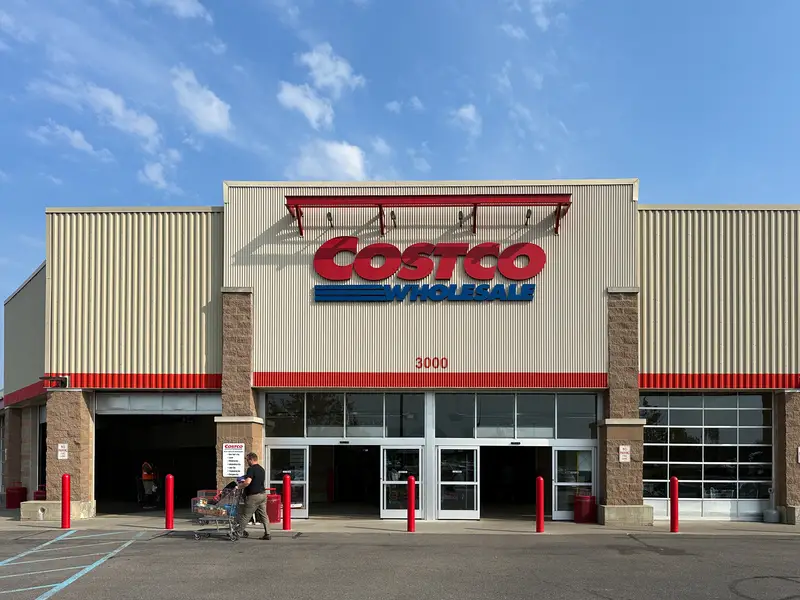Imagine walking into your local Costco, ready to stock up on your favorite items, only to discover that some products are missing from the shelves or worse – potentially dangerous to keep at home. Recent recalls have sent Costco shoppers into a frenzy, with some incidents so severe that customers were told not to return the items to stores. These situations have highlighted just how quickly beloved products can become safety hazards, leaving millions of loyal Costco members scrambling for alternatives.
Prosecco bottles were exploding without warning
The Kirkland Signature Prosecco Valdobbiadene recall stands out as one of the most alarming incidents in recent memory. This popular sparkling wine, known for its affordable price point, became a potential safety hazard when bottles began shattering without any warning signs. Customers across multiple states – including Iowa, Illinois, Indiana, Kentucky, Minnesota, Michigan, Missouri, North Dakota, Nebraska, Ohio, South Dakota, and Wisconsin – found themselves dealing with a product that could literally explode in their hands.
The situation was so dangerous that Costco took the unusual step of advising customers not to bring the bottles back to stores. Instead, they recommended carefully wrapping each bottle in paper towels, placing it in a plastic bag, and disposing of it in the trash. The recall affected purchases made between April 25, 2025, and August 26, 2025, with the item ID 1879870. Costco sent notices directly to affected members, emphasizing the severity of the glass shattering risk even before bottles were opened.
Social media reactions showed real customer fear
Reddit became the gathering place for concerned Costco shoppers sharing their experiences with the defective prosecco. One customer posted about opening a bottle just before learning about the recall, expressing relief that it didn’t explode in their face. Another shopper described a particularly unsettling experience where two corks started popping out as soon as they loosened the wire cage, which likely explained the pressure buildup issue causing the bottles to shatter.
Perhaps the most heartbreaking story came from a customer who had been saving a bottle for their 50th wedding anniversary, only to learn they needed to throw it away for safety reasons. These personal accounts revealed how the recall affected real people’s lives and special occasions. The collective anxiety among customers was palpable, with many questioning how such a dangerous product had made it to store shelves in the first place.
Beloved peanut butter disappeared from shelves
While not technically a recall, the sudden disappearance of Kirkland Signature Organic Peanut Butter caused just as much panic among devoted customers. The iconic red-topped containers, a lunch staple for countless families, vanished from warehouse shelves without warning. Parents who relied on these large jars for school lunches and everyday snacking found themselves frantically searching for alternatives, often at much higher prices.
When one concerned shopper asked a Costco employee about the product’s return, she received devastating news: it had been deleted from the system entirely. Social media posts about the missing peanut butter quickly went viral, with customers expressing genuine devastation over losing their go-to spread. The timing couldn’t have been worse, coinciding with back-to-school season when families stock up on lunch essentials.
This isn’t the first peanut butter crisis
Seasoned Costco shoppers quickly pointed out that the organic peanut butter has disappeared before, offering hope to panicked customers. In 2021, the product vanished for several months before making a triumphant return to shelves. Even further back in 2012, a nationwide peanut shortage kept the popular spread unavailable for an extended period, proving that temporary shortages don’t always mean permanent discontinuation.
The pattern suggests that supply chain issues, ingredient sourcing problems, or manufacturing delays might be behind these disappearances rather than a deliberate decision to discontinue the product. However, the lack of official communication from Costco leaves customers guessing about when – or if – their beloved peanut butter will return. The uncertainty drives much of the panic, as families scramble to find suitable replacements for their pantry staple.
Refund process became complicated for dangerous items
The prosecco recall highlighted how complicated returns can become when safety is involved. Instead of Costco’s usual generous return policy, customers had to follow specific disposal instructions and bring their recall notice to claim refunds. The process required careful handling of potentially dangerous bottles, wrapping them in protective materials, and disposing of them at home rather than transporting them back to the warehouse.
For customers experiencing issues with the refund process, Costco directed them to contact Ethica Wines, the importer responsible for the Kirkland brand wine. This extra step added another layer of complexity to what would normally be a straightforward return. The unusual procedure demonstrated how serious safety concerns can completely override standard retail practices, even at a store famous for accepting returns on almost anything.
Multiple states faced the same problems
The geographic spread of the prosecco recall revealed how widespread the problem had become. Customers in twelve different states dealt with the same dangerous bottles, suggesting a significant manufacturing or storage issue affected entire shipments. The recall’s scope meant thousands of bottles potentially sat in homes across the Midwest, creating a massive safety concern that required immediate action.
State-by-state coordination became necessary to ensure all affected customers received proper notification about the recall. The wide distribution also meant that many customers might have purchased the prosecco while traveling or visiting different Costco locations, complicating efforts to track down everyone who bought the dangerous bottles. Regional variations in how quickly information spread added another challenge to managing the recall effectively.
These incidents remind us that even the most trusted retailers can face unexpected product safety issues and supply chain disruptions. While Costco’s handling of the dangerous prosecco recall showed appropriate caution, the uncertainty surrounding the peanut butter situation left many customers feeling frustrated and unprepared. Smart shoppers might consider keeping backup options for their most essential items, especially when relying on store brands that may have limited alternative sources.

